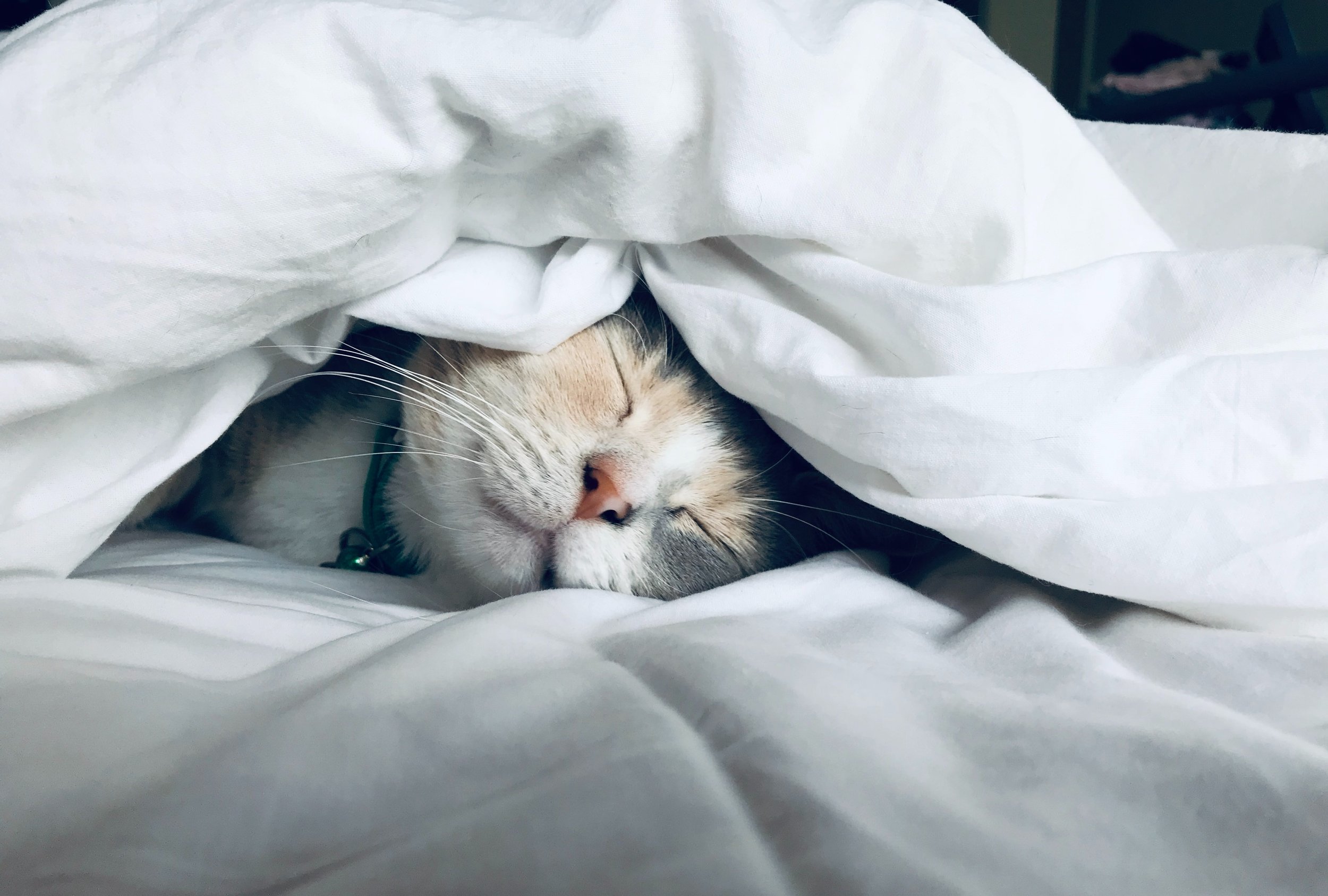Tips to a Better Nights Sleep
Sleep, something that is considered a necessity; however not always easy to come by! Sleep is considered just as important as regular exercise and eating a healthy diet.
Photo by Kate Stone Matheson on Unsplash downloaded 11/4/22
Sleep loss can have negative impacts to both mental and physical health.
These impacts can include:
Low performance at work or school
Slowed reaction time
Mental health disorders (such as anxiety, depression, substance abuse)
Increased risk or severity of long-term diseases or conditions (such as high blood pressure).
So how can we work on getting better quantity and quality sleep?
There are commonly recommended sleep hygiene practices that can go a long way in helping with sleep improvement. I will talk more about some of these here: Try to develop a healthy sleep pattern by regulating your bedtime and get up time to be the same each day. This will help regulate your internal body clock to where you will naturally start becoming sleepy at bedtime and wake more naturally at get up time. Make sure your environment is comfortable and conducive to restful sleep. This can include making sure noise level is minimal. This might require ear plugs if you prefer the complete quiet; or a white noise machine if you prefer some back-ground sounds. Having a comfortable environment also means making sure the temperature is just right for you. Our body temperature naturally falls at bedtime and naturally rises as get up time approaches. So, if you tend to prefer a warmer environment, make sure you have comfortable, cozy blankets. If you prefer a cooler environment, make sure you have a fan running or use bedding that is more conducive to cooler temperatures (i.e., cotton over flannel sheets).
Another important factor for a comfortable environment, is make sure the room is dark enough for you liking. Using black-out curtains to prevent unwanted light from entering the room or consider wearing a sleep mask.
Try to engage in non-stimulating activities
Photo by Andrew Neel on Unsplash downloaded 11/3/22
Try developing relaxation routines to signal your body that it is time to wind down for bedtime. Relaxation routines might include breathing techniques, relaxing sounds/music, mindfulness meditation. Taking a hot shower or bath. A relaxation routine is good to do approximately 30 minutes to an hour before bedtime. Avoid napping, if possible, as this can drain your sleep drive and the goal is to have your sleep drive filled by bedtime, as this will help with falling and maintaining sleep throughout the night. If you must nap, try to limit it to an hour at most, and not within approximately 4-6 hours before bedtime. Other things that might drain your sleep drive that should be avoided approximately 4-6 hours before bedtime are caffeine, and nicotine.
Try not to go to bed on a full stomach, nor a completely empty stomach, as both states can disrupt sleep. If you are feeling hungry, try to eat a light snack before bed, or drink some warm milk. If you can’t fall asleep within 20 minutes, get out of bed and do something non-stimulating, then when you start to feel sleepy, go back to bed and try again. Only use your bed for sleeping and sex. You want to correlate your bed as much as possible, with sleeping; not activities that you would do when awake (i.e. watching TV, reading, paying bills). It would be preferred that if you must do these activities in your bedroom, have a chair or desk at which to do them instead. And last, but definitely not least, put down the electronics! Not only are our phones, tablets, computers stimulating; they are light emitting which can cause alertness and delay sleep.
If you are concerned you might have a sleep disorder, talk with your doctor about testing and treatments, or talk to your therapist. Your therapist may recommend or refer to a doctor for help or provide referrals, or your therapist may help with providing tips like the ones listed above to help with your sleep habits. So, Sweet dreams!
When to talk to a therapist
If you’re noticing that you’re trying all these tips, and more, and you’re still struggling to sleep, reach out to a counselor or therapist. Sometimes, we may struggle to sleep or form bad sleep habits from anxiety, stress, depression, and so much more. Talking to a therapist may help you figure out what is causing sleepless nights, or even help you with other areas of concerns.
We here at Aspire Counseling really value our sleep. We know that you’re not your best you when you’re not getting enough sleep. Our counselors and therapists believe in helping you in any areas of concerns. We offer online services to those located anywhere in the state of Missouri, and work with college students, and adults of all ages experiencing stress, anxiety, worry, self-esteem/confidence issues, along with depression, grief, trauma, and even OCD. Aspire Counseling urges you to reach out to our Client Care Coordinator at 573-328-2288, or, go here and fill out an online form! We understand how stressful, and sometimes worrisome it can be to find a counselor to help, so let us be that choice and let us help you!
About the Author
Katherine Ottofy, therapist at Aspire Counseling, specializing in EMDR, trauma, individual relationships, grief, stress, confidence, depression, anxiety and so much more.
Katherine Ottofy (LCSW) is the newest addition to the Aspire Counseling team. Katherine understands the stress of not getting enough sleep or having a difficult time getting to sleep. She enjoys being collaborative and using positive aspects to help you find a plan that is unique and tailored to your needs. Katherine works with college students and adults of all ages experiencing anxiety, trauma, depression, grief, stress, self-confidence and self-esteem issues, and she also specializes in EMDR.




